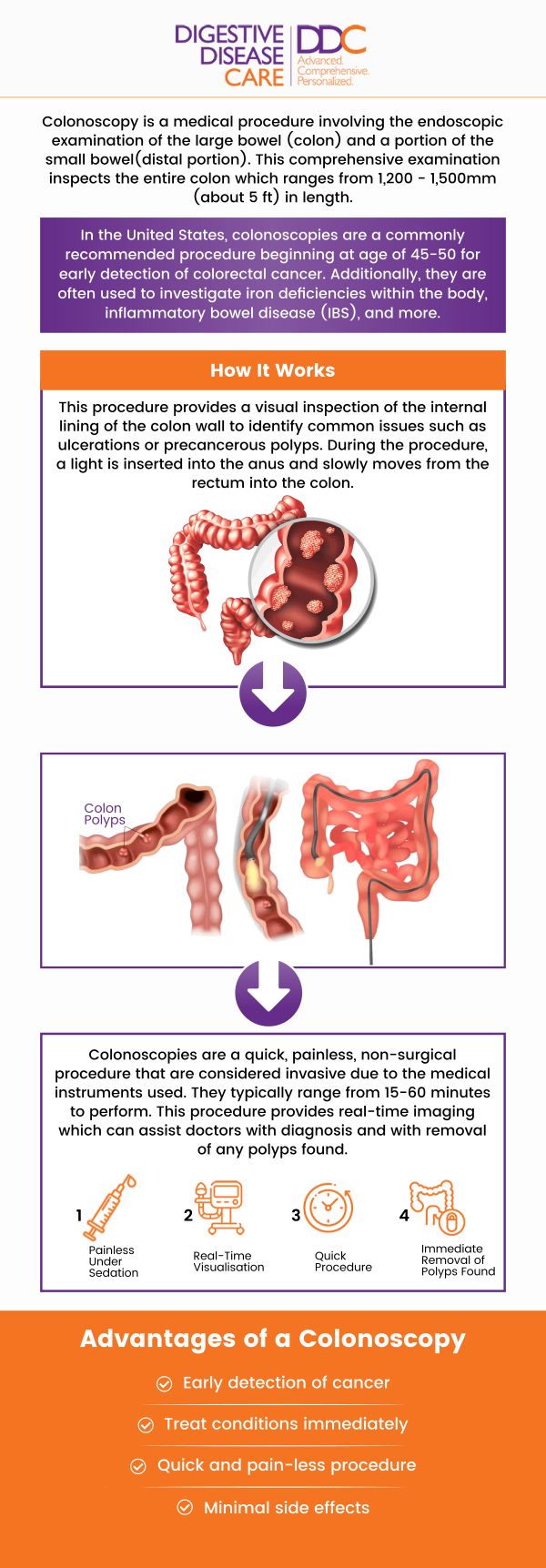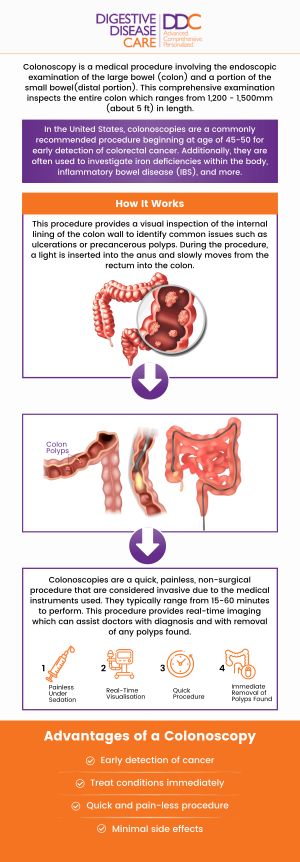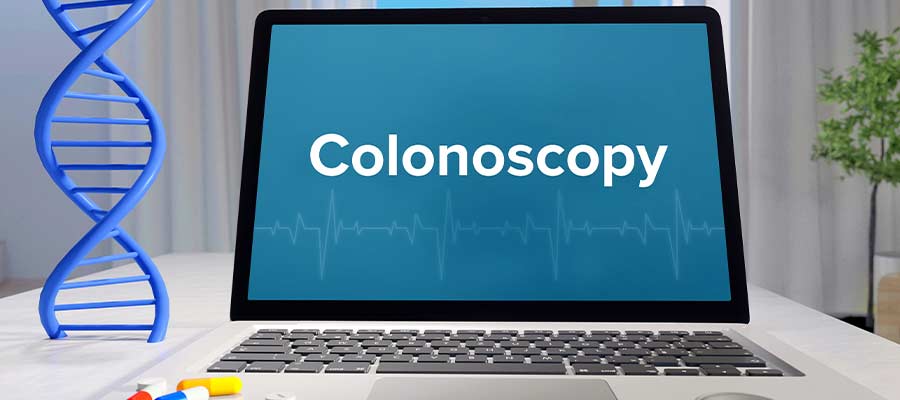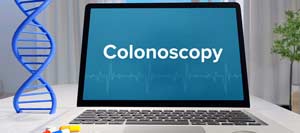Top Colonoscopy Specialist in New Hyde Park, NY
Colon cancer is a serious and life-threatening disease that affects millions of people around the world. According to the American Cancer Society, colon cancer is the third most common cancer diagnosed in both men and women in the United States. While anyone can develop colon cancer, there are certain risk factors that increase an individual’s likelihood of developing the disease. Visit Digestive Disease Care (DDC) today to get specialized and comprehensive care from a board-certified gastroenterologist in New Hyde Park NY. For more information, please contact us or request an appointment online. We are conveniently located at 1575 Hillside Ave, New Hyde Park, NY 11040.




Table of Contents:
Who is at risk of colon cancer?
Is a colonoscopy covered by insurance?
Is a colonoscopy an expensive procedure?
What exactly is done during a colonoscopy?
Where to find a board-certified gastroenterologist in New Hyde Park NY for a colonoscopy?
Colon cancer is more common in individuals over the age of 50, with the risk increasing significantly as individuals reach their 60s and 70s. This is partly because as we age; our cells are more susceptible to mutations that can lead to cancer. Additionally, a family history of colon cancer increases an individual’s risk of developing the disease. For example, individuals with a first-degree relative (parent, sibling, or child) who has had colon cancer are two to three times more likely to develop the disease themselves. Furthermore, genetic mutations such as Lynch syndrome and familial adenomatous polyposis (FAP) increase the risk of colon cancer. Lynch syndrome is an inherited condition that increases the risk of colon cancer and other cancers, while FAP is a rare genetic disorder that causes the growth of polyps in the colon, which can turn into cancer if left untreated.
In addition to age and genetics, certain lifestyle factors can increase an individual’s risk of developing colon cancer. A diet high in red and processed meats has been linked to an increased risk of colon cancer, as these foods contain chemicals that can damage the cells in the colon. Lack of physical activity and obesity are also risk factors for colon cancer, as a sedentary lifestyle and excess body weight can lead to inflammation and other changes in the body that increase cancer risk. For example, a study published in the Journal of the National Cancer Institute found that individuals who were physically inactive had a 24% higher risk of colon cancer than those who were physically active.
Finally, certain medical conditions have been linked to an increased risk of colon cancer. Inflammatory bowel diseases such as ulcerative colitis and Crohn’s disease are risk factors for colon cancer, as chronic inflammation in the colon can lead to the development of cancerous cells. Additionally, individuals with type 2 diabetes are at an increased risk of colon cancer, as high blood sugar levels can damage the cells in the colon. Finally, radiation therapy for other cancers has been linked to an increased risk of colon cancer, as the radiation can damage the DNA in the cells of the colon.
Screening tests are key to detecting certain types of cancer early and can increase your chances of survival. These tests include mammograms, chest X-rays, annual blood tests, and colonoscopies.
The Centers for Disease Control and Prevention (CDC) recommends that people 45 and older begin regular colon cancer screenings. People at higher risk of developing the disease may need to be tested earlier.
The Affordable Care Act (ACA) requires private insurance companies and Medicare to cover the cost of colorectal cancer screening tests as recommended by the U.S. Preventive Services Task Force (USPSTF). The ACA states that insurance companies will not charge out-of-pocket costs, such as copays or deductibles, for these tests.
A colonoscopy is a procedure performed by a doctor to check for abnormalities in the colon. Out-of-pocket costs for a colonoscopy range from $1,250 to $4,800. There are several factors that affect the cost of surgery, and one important factor is where the surgery is performed.
A colonoscopy is a medical procedure that is often recommended for individuals over the age of 50 to screen for colon cancer or other potential abnormalities in the colon. While the thought of a colonoscopy may be daunting, understanding what to expect can help alleviate any anxiety or concerns.
Before the colonoscopy, there are several steps that must be taken to prepare for the procedure. First and foremost, dietary restrictions are necessary to ensure that the colon is free of any obstructions that may interfere with the examination. This often involves consuming only clear liquids and avoiding solid foods for a period before the procedure. Additionally, medication adjustments may be necessary, as some medications can increase the risk of bleeding during the procedure. Finally, a bowel cleansing process is required to ensure that the colon is completely clean before the examination. This often involves drinking a special solution that causes diarrhea and clears out the colon.
During the colonoscopy procedure, a patient is typically given anesthesia to ensure comfort and relaxation during the examination. Once the patient is sedated, the colonoscope, a long, flexible tube with a camera on the end, is inserted into the rectum and guided through the colon. The camera allows the doctor to examine the colon for any abnormalities, such as polyps or tumors. If any abnormalities are found, the doctor may take a biopsy for further testing.
After the colonoscopy procedure is complete, the patient will need time to recover from the anesthesia. Once fully awake, the doctor will provide post-procedure care instructions, which may include dietary restrictions or medication adjustments. It is important to follow these instructions carefully to ensure a smooth recovery. Additionally, follow-up appointments will be necessary to discuss the results of the examination and any further testing or treatment that may be required.
You can easily complete a search through a search engine online through sites like Google, or you can contact our clinic. We have some of the top colonoscopy specialists in New Hyde Park, NY available to you. Schedule your consultation today! We have convenient locations to serve you in Melville NY, New Hyde Park NY, Forest Hills NY, Jericho NY, Mineola NY, Lake Success NY, Babylon NY, East Setauket NY, Massapequa NY, Riverhead NY and BEYOND.

Check Out Our 5 Star Reviews


Additional Services You May Like

Additional Services You May Like
- Abdominal Pain
- Acid Reflux
- Barretts Esophagus
- Bloating
- Capsule Endoscopy
- Celiac Disease
- Colon Cancer Screening
- Colonoscopy
- Constipation
- Crohns Disease
- Diarrhea
- Diverticulitis
- Esophageal PH Monitoring
- Fatty Liver
- Fibroscan
- Gallstones
- Gastroenterologist
- Gastric Chest Pain
- Gluten Intolerance
- Hemorrhoid
- Hemorrhoid Banding
- Hepatitis
- Irritable Bowel Syndrome
- Lactose Intolerance
- Pancreatitis
- Polyps
- Rectal Bleeding
- Stomach
- Ulcerative Colitis
- GI Urgent Care





